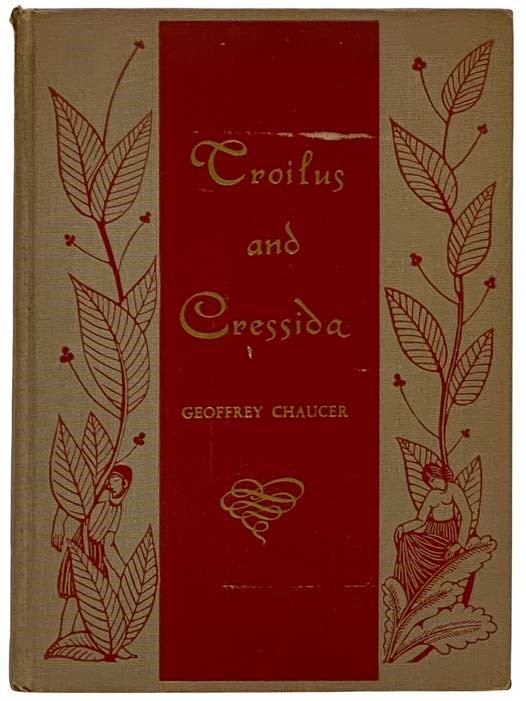
Troilus and Cressida: A Love Poem in Five Books, Englished Anew
New York: Random House, 1932. Gill, Eric (Wood Engravings). First Edition. Hard Cover. Very Good / No Jacket. Item #2320807
First edition. No jacket. One inch tear along top edge of front joint.
xviii, 309 pp. Wood engravings by Eric Gill. Troilus and Criseyde, tragic verse romance by Geoffrey Chaucer, composed in the 1380s and considered by some critics to be his finest work. The plot of this 8,239-line poem was taken largely from Giovanni Boccaccio's Il filostrato. It recounts the love story of Troilus, son of the Trojan king Priam, and Criseyde, widowed daughter of the deserter priest Calchas. The poem moves in leisurely fashion, with introspection and much of what would now be called psychological insight dominating many sections. Aided by Criseyde's uncle Pandarus, Troilus and Criseyde are united in love about halfway through the poem, but then she is sent to join her father in the Greek camp outside Troy. Despite her promise to return, she is loved by the Greek warrior Diomedes and comes to love him. Troilus, left in despair, is killed in the Trojan War. These events are interspersed with Boethian discussion of free will and determinism and the direct comments of the narrator. At the end of the poem, when Troilus's soul rises into the heavens, the folly of complete immersion in sexual love is contrasted with the eternal love of God. In medieval handlings of the Trojan story Troilus was portrayed as the embodiment of an innocent young lover betrayed by a fickle girl who abandoned him for the Greek hero Diomedes. This story of Troilus's unhappy passion appears to have been invented early in the 12th century by Benoît de Sainte-Maure in the poem Roman de Troie. Benoît called the girl Briseida, a name later modified by other writers to Cressida. The 14th century saw two important treatments of the Troilus and Cressida theme: Giovanni Boccaccio's poem Il filostrato (derived from Benoît and from the Historia destructionis Troiae of Guido delle Colonne) and Geoffrey Chaucer's Troilus and Criseyde (based mainly on Boccaccio). Their story was also the subject of Shakespeare's play Troilus and Cressida. - Encyclopedia Britannica
Price: $18.00
